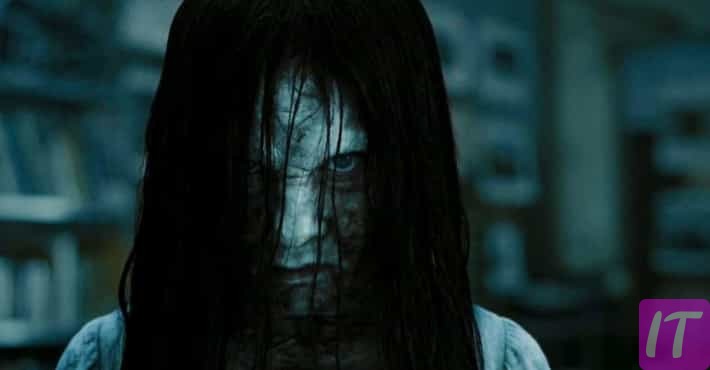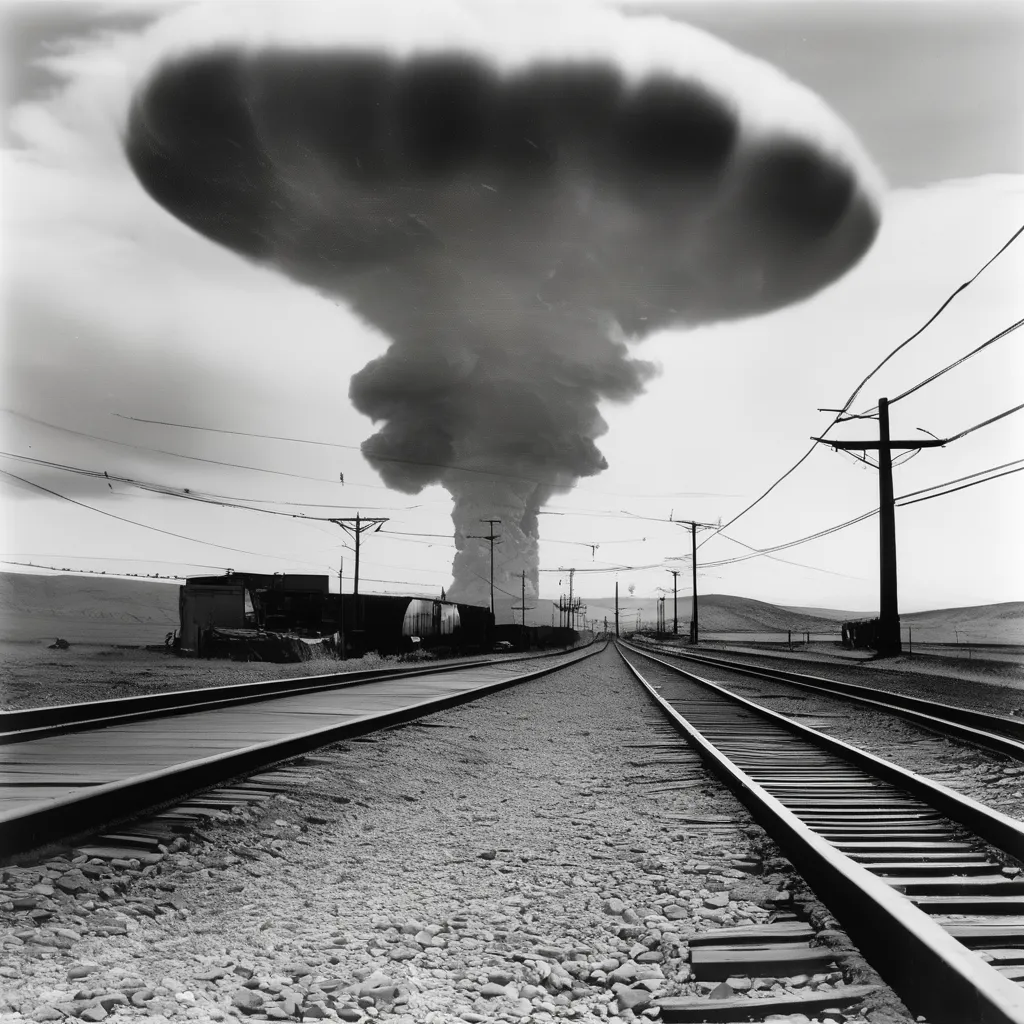Legends of ghosts, hauntings, and cryptids have permeated virtually every culture, raising the question: could there be some truth behind these tales? Despite centuries of human inquiry, the supernatural remains shrouded in mystery, with only scant scientific evidence to support its existence. This dichotomy between belief and proof continues to fascinate and baffle us.
Historically, numerous civilizations have documented their supernatural experiences, from the Egyptians with their gods to European medieval folklore. Recent surveys indicate that over 40% of Americans believe in some form of supernatural phenomena. While modern science has yet to definitively prove the existence of the supernatural, the continued exploration in this area shows our relentless curiosity and desire to understand the unknown.
Is the Supernatural Really True?
Throughout history, people have told stories of ghosts, witches, and other supernatural beings. These tales often stem from unexplainable events that spark curiosity and fear. Events like strange noises in the night or ghost sightings in old buildings stir imaginations. Despite modern technology, many of these occurrences remain unexplained, keeping the belief in the supernatural alive. But does the lack of explanation make these phenomena real?
Science has tried to explore and explain supernatural events, often finding natural explanations. For example, researchers have linked ghost sightings to environmental factors, like changes in air pressure or sounds that are below the range of human hearing. Skeptics argue that as science advances, fewer paranormal activities will remain mysteries. However, the fascination does not seem to wane, as people continue to seek answers outside the realm of science.
Popular media also fuels the belief in the supernatural through movies, books, and TV shows that portray ghostly activities and other unexplained phenomena. Stories based on real-life paranormal investigations capture the public’s interest. People love the thrill of exploring the unknown, and these tales offer just that. While entertaining, these stories blur the line between fiction and reality, making it hard for the public to distinguish between the two.
Some people claim to have personal experiences with the supernatural, which they believe are real. These experiences can range from sensing a presence to witnessing objects moving on their own. For them, these occurrences are proof enough of the supernatural’s existence. Personal stories and anecdotal evidence continue to contribute to the collective belief in the supernatural, even without scientific backing.
The Dichotomy between Belief and Scientific Proof
Many people believe in the supernatural based on personal experiences and cultural stories. They argue that their encounters with ghosts or unexplained events are real and can’t be dismissed. These beliefs often provide comfort or a sense of understanding about the unknown. While compelling, they lack scientific evidence. This creates a divide between what people feel is true and what science can prove.
Scientific proof requires measurable and repeatable evidence. For instance, scientists use tools and experiments to test for supernatural phenomena. Most of the time, they find natural explanations, like drafts causing doors to creak or magnetic fields affecting people’s emotions. This methodical approach seeks to debunk myths but often clashes with deeply held beliefs. People are not always convinced by scientific findings.
Belief in the supernatural persists despite the absence of scientific proof, underscoring the power of human imagination and cultural traditions. These beliefs are passed down through generations, often through folklore and storytelling. People tend to trust their senses and personal experiences over abstract scientific data. This makes it harder for scientific evidence to completely dispel supernatural beliefs.
This dichotomy affects how society views the supernatural. While some celebrate skeptics who debunk ghost myths, others admire those who’ve had paranormal experiences. This tension keeps the topic alive and hotly debated. It shows the ongoing struggle between belief and proof in understanding our world.
Historical Accounts of Supernatural Phenomena
Throughout history, many civilizations have recorded encounters with the supernatural. Ancient Egyptians believed in a pantheon of gods who controlled various aspects of life. These gods were not just myths; they were integral to the Egyptians’ understanding of the world around them. Tomb inscriptions and temple carvings depict these deities and their interactions with humans. Such records show how central the supernatural was to their daily lives.
In medieval Europe, tales of ghosts, witches, and demons were widespread. These stories often explained unexplainable tragedies like plagues and natural disasters. People believed that witches could cast spells and bring misfortune. To combat this, witch hunts became common, leading to trials and executions. These events weren’t just folklore but significant parts of history that affected thousands of lives.
Asian cultures, such as those in Japan and China, also have rich histories of supernatural beliefs. Japanese folklore includes stories of yurei, or spirits of the dead, who seek vengeance. Chinese legends feature dragons, revered as powerful and benevolent creatures. These tales have been passed down through generations and remain a vibrant part of cultural celebrations. They influence modern media like movies and books, proving their lasting impact.
- Ancient Egyptian Gods
- Medieval European Witch Hunts
- Japanese Yurei
- Chinese Dragons
Numerous Indigenous cultures as well have their own supernatural stories. Native American tribes speak of spirit animals guiding warriors or bringing messages from ancestors. These spirits are often considered sacred and are treated with great respect. Their stories serve as moral lessons and cultural teachings. This integration of the supernatural into daily life shows how these beliefs shape societies.
Recent Research and Discoveries on the Supernatural
In recent years, scientists have used advanced technologies to explore supernatural claims. Equipment like electromagnetic field (EMF) detectors and thermal imaging cameras have been employed in ghost hunting. These tools help capture data that might explain unusual occurrences. For example, sudden temperature drops detected by thermal cameras may indicate a draft rather than a ghostly presence. Despite these studies, definitive proof remains elusive.
Universities and research institutions have taken a more analytical approach to the supernatural. Psychologists have investigated the power of suggestion and its role in paranormal experiences. They discovered that people are more likely to report supernatural events in ‘haunted’ locations due to high expectations. Studies also found that witnessing a friend’s reaction to an eerie environment can amplify one’s own sense of fear. This highlights the psychological factors influencing belief in the supernatural.
- EMF Detectors and Thermal Cameras
- Role of Suggestion in Paranormal Experiences
- Peer Influence on Belief
Parapsychology is a field focused on studying psychic abilities and supernatural phenomena. Parapsychologists conduct experiments on telepathy, psychokinesis, and other paranormal claims. In controlled settings, they examine whether these abilities exist beyond random chance. While some results are intriguing, consistent scientific validation is lacking. This field remains controversial among mainstream scientists.
Global interest in the supernatural has also led to various television shows and documentaries. Programs like “Ghost Hunters” and “Paranormal Witness” document real-life investigations into haunted sites. These shows often use sophisticated equipment to capture evidence of ghostly activity. They excite audiences but also blur the line between entertainment and factual research. As a result, public interest in supernatural research continues to grow.
Researchers are now exploring the role of brain chemistry in supernatural experiences. Studies suggest that certain conditions, such as sleep paralysis, can produce ghost-like visions. Neuroscientists are examining how the brain’s structure and function contribute to these perceptions. This research aims to provide a biological explanation for phenomena often attributed to the supernatural. Though promising, this area of study is still in its early stages.

The Never-Ending Fascination with the Supernatural
The human fascination with the supernatural is a phenomenon that transcends cultures and generations. This interest can be traced back to the ancient world, where myths and legends captivated minds. Stories of gods, spirits, and mystical creatures have always intrigued people. These tales serve not just as entertainment, but as expressions of our deepest fears and desires. This timeless allure ensures the supernatural remains a compelling topic.
Television, movies, and books play a significant role in fueling our fascination with the supernatural. Horror films and series like “The Conjuring” or “Stranger Things” bring ghost stories and otherworldly beings to life. These media forms create immersive experiences that allow viewers to explore their fears in a safe environment. The success of such genres shows that public interest in the supernatural is far from waning. Media continues to reinvent and reintroduce these themes, keeping them relevant.
Social media also amplifies our interest in the supernatural with viral stories and videos. Platforms like YouTube and TikTok feature countless clips of alleged ghost sightings and paranormal activities. These short videos often get millions of views and spark widespread discussions. Lists and forums provide spaces for users to share their own supernatural experiences, adding layers to the collective narrative. This digital age ensures that supernatural fascination is just a click away.
- TV Shows and Movies
- Social Media Stories
- Books and Literature
- Online Forums and Discussions
Another reason for this endless fascination is the promise of discovering something beyond our current understanding. The supernatural offers a sense of mystery that science hasn’t fully solved. It keeps the door open to the unknown, inviting curiosity and wonder. This ongoing search for answers keeps people engaged and fuels further inquiry. Each unanswered question leads to another, perpetuating the cycle of interest.
Paranormal tourism is a growing industry that caters to supernatural enthusiasts. Haunted houses, ghost tours, and spooky attractions provide thrilling experiences for those seeking an adrenaline rush. These attractions often capitalize on local legends and historical accounts to create an immersive experience. Visitors relish the chance to encounter the unexplained in real life. This type of tourism shows that people’s curiosity about the supernatural extends beyond fiction.
The Unexplored Areas of the Supernatural
While much has been studied about ghosts and hauntings, many areas of the supernatural remain unexplored. One such area is cryptozoology, the study of creatures like Bigfoot and the Loch Ness Monster. Despite numerous sightings and reports, these creatures have yet to be scientifically documented. The mystery surrounding them keeps the interest alive. Researchers continue to investigate, hoping to find conclusive evidence one day.
Time slips are another unexplored area of the supernatural. These are experiences where people momentarily find themselves in a different time period. Theories suggest that these slips could be due to glitches in time or the human brain’s perception. However, concrete evidence is lacking, making time slips a fascinating yet elusive subject. This enigma continues to intrigue those interested in the supernatural.
Another mysterious aspect is the phenomenon of shadow people. These beings are often described as dark, shadowy figures seen out of the corner of one’s eye. Some believe they are ghosts, while others think they are entities from another dimension. Shadow people have been reported worldwide, but no scientific explanation exists yet. This adds another layer of mystery to the supernatural realm.
- Cryptozoology
- Time Slips
- Shadow People
UFOs and extraterrestrial life also capture the imagination of many. Governments have declassified documents that show unexplained aerial phenomena. While not traditionally considered supernatural, these events challenge our understanding of the universe. Scientists are still searching for signs of intelligent life beyond Earth. The possibility of discovering something out there keeps the curiosity alive and the questions coming.
Another area ripe for exploration is the concept of parallel universes. Some believe that these alternate realities could be the source of supernatural experiences. The idea that other versions of ourselves might exist in different dimensions is both thrilling and eerie. This theory offers endless possibilities for new discoveries. As technology advances, who knows what we might uncover?
Frequently Asked Questions
The supernatural enchants and baffles us, putting us at the intersection of myth and reality. Here are some frequently asked questions that delve into common curiosities about the supernatural.
1. What tools do ghost hunters use in their investigations?
Ghost hunters often use a variety of tools to detect supernatural activity. Some popular devices include EMF detectors, thermal imaging cameras, and digital voice recorders. EMF detectors measure electromagnetic fields, which may indicate a ghostly presence. Thermal imaging cameras capture temperature variations, while digital voice recorders pick up electronic voice phenomena (EVPs).
These tools help investigators gather data that can either support or debunk claims of paranormal activity. While these gadgets provide intriguing results, the findings are often inconclusive. Scientific scrutiny remains essential for validating any potential supernatural evidence captured during investigations.
2. Are there any famous haunted locations around the world?
Yes, several sites worldwide are famous for their alleged hauntings and ghostly visits. The Tower of London is one such place, where past executions have spurred numerous ghost sightings. Another notable location is the Winchester Mystery House in California, known for its maze-like architecture allegedly designed to confuse spirits.
Apart from these, many castles and old mansions in Europe also carry tales of ghosts and supernatural phenomena. People visit these sites hoping to experience something otherworldly or to learn more about their eerie history. These haunted locations contribute significantly to local tourism by attracting curious visitors year-round.
3. What is the role of parapsychology in studying the supernatural?
Parapsychology seeks to investigate paranormal activities through scientific methods, exploring telepathy, psychokinesis, and other psychic abilities. Parapsychologists conduct controlled experiments to discern whether these phenomena exist beyond random chance or human explanation.
Some studies suggest intriguing possibilities, though mainstream science often questions their legitimacy.
This field remains controversial but has given rise to respected researchers dedicated to understanding seemingly inexplicable events.
Their work aims at bridging gaps between empirical evidence and personal experiences that claim paranormal occurrences.
By striving for objective analysis amidst skepticism,
Parapsychology persists as an avenue for those envious
of comprehending sought-after mysteries embedded within our reality’s fabric.’
4.What Are Cryptids,and How Are They Studied
Cryptids refer t mysterious creatures likeNess MonsterBigfoot,lclaims sightingsMyths cryptozoologists hunt proof biological samples.A grotesque range lacks explanations fuels interest amateur professional cryptid
Can lead fantastic blogs speculating biologic ecological existence
Result fascination exploration bizarre depths nature possible intertwiningcreatures holes knowledge scientific advancement?
Threaded search clear tangible footprints map documentary life undiscovered wildernessEncrypt species encrypted minds culture continuingquery
</H SupernaturalTV ShowsMaintainPop
PalpitatingPublicInterestParanormal5
SureShudderingSupernaturalThemesFromHaunting EntertainmentThrillFansGenuineEnthusiasts.alondyProvenHighlyRatedSeriesEncounteringEerieEntitiesExcitesAdrenaline,FantasiesSeriousProfessionlakmentation.NewProgramsWhenVariousThe Dark Matter UnsolvedMysteries CreateBloggersPodcastsSpectacularSharesExperiences.fluencedPopularApproachTypicalInvestigationParanormalEmpiricallyEmergesEsotericHipMatterAutonomousZoneRelentlessCuriosityLifeFabricExploringPhenomenaExtraordinaryReputable Trusted InquiriesAmazesAll
ShowsRemoteTestStunningMockumentariesRivetingIncreasinglyJonercialDocumentary EpisodesFreshApproachesReigniteEntity.CategoryToneDefinitionsEpisodes ClearlyFieldExplanationEnduringPuzzle验证定律CyberlesToAnelestial OnceHearts FollowingAssumptionsNoise WonderExpanding입PortPastFutureFunDissectionUnveilTrailingBeyondCurtainsExpectsAnalyzesLadtHeartOfDarkMatterAchievingSatisfactionRememberCourageOurSearchLightTrue.’
Conclusion
The supernatural continues to captivate human imagination, merging cultural beliefs with scientific inquiries. Despite technological advances, many phenomena remain unexplained, keeping the mystery alive. This ongoing intrigue ensures that the passion for supernatural exploration will endure.
As we advance in our understanding of the world, the allure of the unknown pushes us to explore further. Bridging the gap between belief and scientific proof remains a challenging yet fascinating endeavor. The quest to uncover the truth about the supernatural is far from over.







